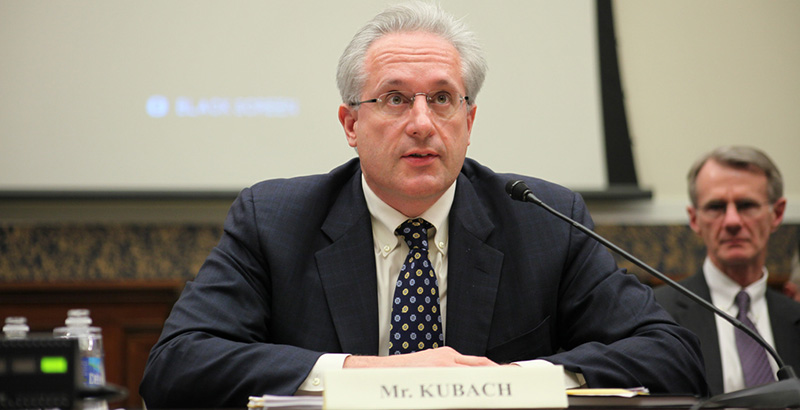Fallon: Remembering Doug Kubach — Mentor, Adviser, Champion of Talent & Technology

This appreciation was adapted from a message to Pearson employees
Today we mourn the death of our friend and former colleague Doug Kubach, who dedicated his whole professional life to education.
In a career that spanned almost four decades, many hundreds of education professionals benefited from his wisdom, guidance, tough love, and friendship. Today’s education community is brimming with the talent Doug mentored, supported, and advised along the way. He was widely respected by education commissioners and school superintendents across America, and by colleagues, peers, and competitors around the world. That respect from a combination of educators, policymakers, and industry professionals is a rare thing to behold.
At the Pearson board meeting last week, we talked about the fact that our assessment capabilities will be increasingly important to everything we do across the company. In presenting our half-year results earlier that day, I was conveying to analysts and journalists our excitement about Pearson’s world-leading capabilities in applying artificial intelligence and data analytics to help teachers and students be more successful.
It is no exaggeration to say that without Doug’s leadership and vision in these fields, we would not be able to look to the future with such confidence.
Doug graduated from Dartmouth summa cum laude with a degree in English, one credit short of a double major in computer science. He was always a man who thought words and technology fit naturally together.
After starting his career as a production editor at Prentice Hall, Doug rose through the ranks of the education publishing industry into technology leadership positions at Macmillan and McGraw-Hill. He rejoined Pearson in 2000, working initially on strategy and technology for our then-U.S. school group. He played a key role in the acquisition first of NCS and then Harcourt assessments on which all of our world-leading capabilities in assessment were first built. He led our combined assessment businesses for over a decade, investing and innovating all the time; nurturing, recruiting, and inspiring many of the greatest talents in the field to do their very best work here at Pearson. He championed collaboration across our school businesses around the world, enabling us to share content, technology, and talent in ways we never had before.
Simply put, he was a pioneer in bringing online assessments to schools and classrooms across the country at a time when that wasn’t the norm. He also played a key role in the growth of Connections, our virtual schools businesses. In roles inside and outside of Pearson, Doug was on the cutting edge of our industry’s first efforts to join together technology and learning to benefit both students and teachers.
At his leaving party two years ago in Minneapolis, the gift we chose for Doug was a rare early edition of a collection of Shakespeare’s poetry. At the time, that prompted me, in celebrating Doug’s many achievements and the esteem in which we all held him, to quote from the speech by Polonius to Laertes in Hamlet. The words I spoke then resonate even more strongly today.
As a colleague, you had to earn Doug’s respect, but once you had it, his support would be as strong and constant as “hoops of steel.” Doug picked his battles. He was not a man who sought “easy entrance to a quarrel.” But when he did, you wanted him on your side. As we all saw on more than one occasion, if Doug thought our customers had been wronged, he’d fight for justice, true to the maxim of “being in [a fight], bear’t that the opposed may be beware of thee.”
As any great leader should, he listened more than he talked, giving “every man [and woman] his ear, but few his voice.” His great personal integrity meant that he championed accountability, taking responsibility for his team when things went wrong (a constant possibility in high-stakes testing) without ever making excuses: taking “each man’s censure but few thy judgement.” He knew his own mind and brought a strong moral code to his work. To his own self, Doug was always true.
The flags are lowered at half-staff at our Pearson offices in Bloomington, Minnesota, and at the Strand in London to honor Doug and his tremendous contributions to Pearson and the education community. Our thoughts and prayers are with his wife, Suzanne, and his children, Vanessa, Nora, Ted, and Jordan, and all our colleagues who owe so much to Doug and counted him as a dear friend.
John Fallon is CEO of Pearson.
Get stories like these delivered straight to your inbox. Sign up for The 74 Newsletter

;)